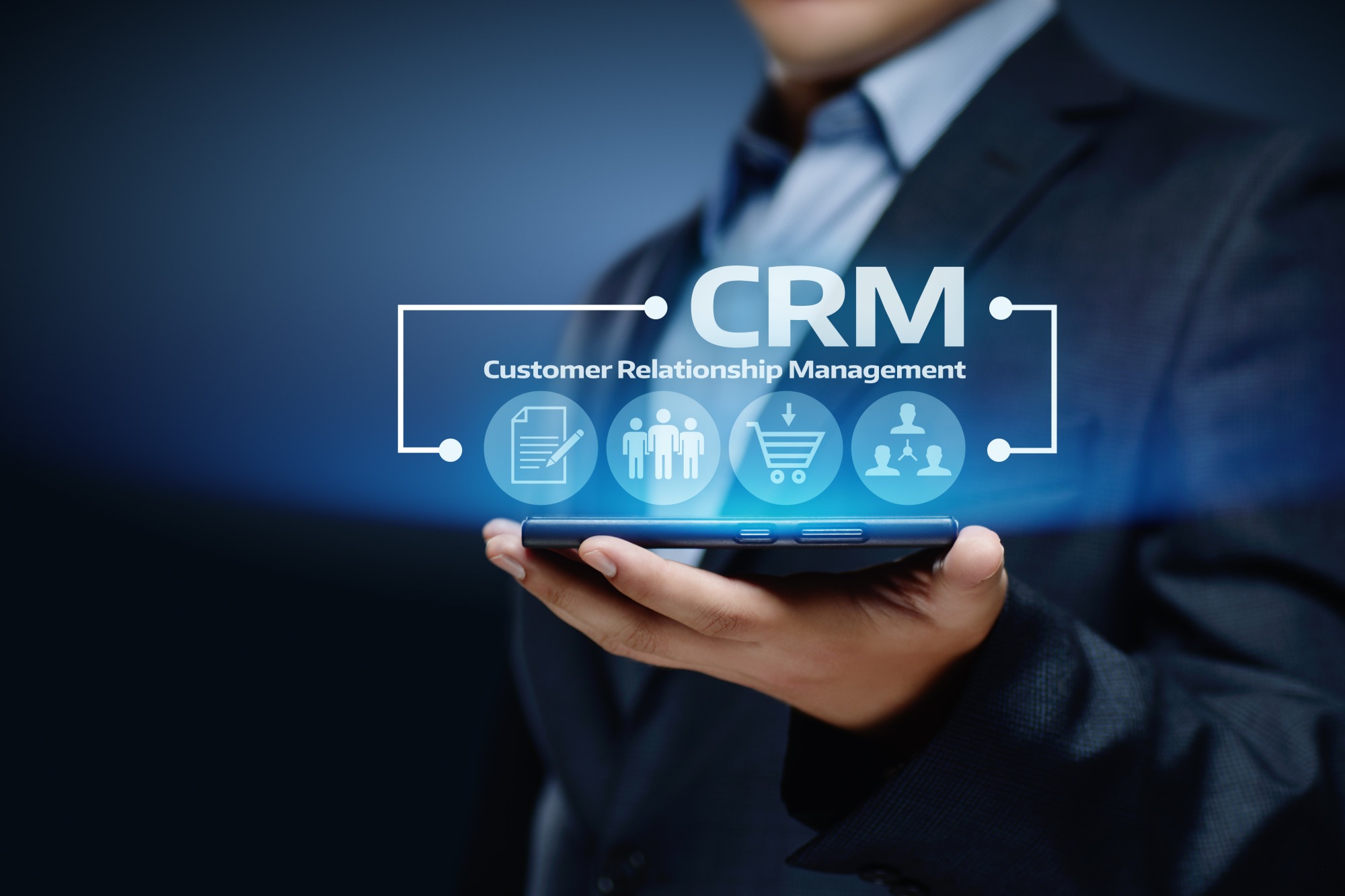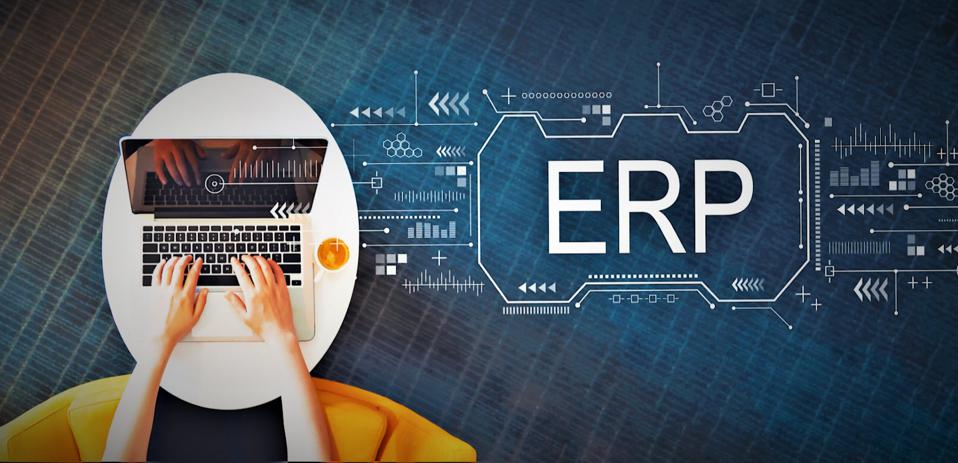
WHAT DIFFERSENTIATES ERP Vs CRM? Any company that wants to flourish must place a high priority on effective data and resource management. Today, it is also impossible to conceive these procedures without the use of potent software tools developed to assist businesses in managing massive amounts of priceless data. The trend of developing enterprise applications is not new. First, after being widely introduced to a large audience in the 1990s, enterprise software systems have undergone significant modification (and improvement). ERP vs CRM is still a major conundrum for many organisations despite the wide range of solutions that are currently accessible, as these two platforms have consistently shown to be the most effective at assisting firms in their expansion.
The most common requests we get from businesses searching for effective management platforms include developing CRM software and ERP systems. CRMs are designed to manage customer life cycles, including marketing, support, and sales, as opposed to ERPs, which assist in tying operational and financial systems together and tracking back-office operations.
How can I choose between CRM and ERP correctly? Do you have to make a decision? Can one system completely replace the other? Or is using both at once preferable? Will it make sense at all?
You can learn the answers to these and many other similar questions by reading this page. But before we examine the ERP system versus CRM battle, let’s start with the fundamental facts regarding these two systems.
CRM system: What is it?

Customer relationship management is known as CRM. This system aids in bringing together and coordinating the efforts of the marketing, sales, and client support teams to improve communication and boost overall business process effectiveness. Personalizing the customer experience and raising customer satisfaction are the ultimate goals of businesses utilising CRM solutions.
In other words, CRM systems collect, store, and process different kinds of customer data that can come from various internal and external sources, including but not limited to content management systems, email, data analytics apps, call centres, social media, email, and ERP (and here is already the first point that can prove that we should consider ERP vs CRM system not only in confrontation but also in tandem).
The company’s teams that work directly with clients can have a thorough understanding of the complete history of the company’s contacts with customers because all customer data can be gathered on one platform. These systems give users access to a complete list of clients together with specific information on their enquiries, contact information, and the results of each interaction with them.
With the help of this data, businesses can be certain that they fully comprehend all of the wants, needs, and particular requirements of their clients and that they don’t overlook any potential customers.
The following characteristics and capabilities are typically found in CRM solutions:
Contact administration
lead supervision
Monitoring tools for customer interactions
Tracking marketing and advertising campaigns
automation in sales.
Read More:TOP BIG DATA TRENDS TO IMPACT YOUR BUSINESS IN 2023?
Benefit from using CRM platforms
- Improved segmentation, better client understanding, and.
- A higher rate of customer retention.better understanding of needs
- improved and more rapid communication.
- better privacy protection for data.
Here are some ways that teams and experts from various businesses might profit from utilising CRM platforms:
Marketing. These experts analyse data gathered in CRM systems to discover prospects, divide them into various groups, and determine which leads have the best possibilities of being monetized and which ones need to be nurtured. CRM tools give marketers the ability to precisely track every stage and phase of the lead’s lifecycle. Marketing teams may make more informed and effective choices about methods of communication with clients, communication channels, and the development of different ad campaigns with the help of an overview of each client.
Support. Teams providing customer service contact directly with customers and gain insights that would not be possible without using several channels of communication. Support specialists can identify the best solutions based on particular clients’ wants and ongoing conditions when they have a complete view of their profiles. Even though chatbots can now perform some support team jobs, these tools can still gather the necessary data and foster customer interactions based on the information found on a CRM platform.
Sales. A CRM gives sales professionals a tool for automating sales. Additionally, sales teams can estimate future sales dynamics and customer behaviour more precisely and realistically thanks to the wealth of data available to them on a CRM platform. Companies are likely to expand sales and profits more quickly if they have a deeper understanding of the demands and expectations of their customers.
eCommerce. Although we can’t say that all companies have gone online, many of them do have online presences. The eCommerce team is able to identify the best answers for shipping options, price, special offers, and other issues thanks to CRM solutions.
The advantages for businesses are clear from the capabilities and fresh chances this kind of enterprise software offers. In fact, the expansion of the CRM industry (as well as the company’s spending in creating and modifying these systems) is not at all surprising. Recent research indicate that the worldwide CRM industry will reach a value of more than $57 billion in 2021. In terms of 2022, experts predict that this amount will be close to $64 billion, while projections for 2029 show that the market will reach a value of $145 billion, resulting in a CAGR of more than 12% from 2022 to 2029.
Today, the most widely used CRMs by businesses throughout the world include Zoho CRM, HubSpot, Pipedrive, Monday.com, Salesforce, and others. Yet it’s also important to note that many companies prefer to create and roll out their own CRM solutions. Several factors, including the potential to build a platform that will be completely customized to their unique business needs and tremendous control over software maintenance and development, explain these choices (without any dependence on a vendor).
When do businesses typically opt to begin utilising a CRM? Just a few scenarios that might be recognisable to you are listed below.
When businesses notice they are loosing control over the client interaction-related business activities;
when their client bases are expanding so quickly that manual tracking is unfeasible;
when businesses and their customers are dissatisfied with the standard of customer service offered by businesses;
A CRM system may appear to be a wonderful concept for fostering and accelerating corporate expansion, but don’t overlook the ERP vs. CRM rivalry. It’s time to move on to a more thorough examination of a standard ERP platform’s capabilities.
ERP: What does it offer to businesses?

With to ERP’s ability to integrate disparate processes that might appear to have virtually nothing in common into a unified ecosystem, it becomes relatively simple. As a result, these systems have the greatest level of acceptance in large businesses with several departments, teams, and workflows. These companies now have a dependable tool for managing diverse operations and assuring result-driven collaboration between multiple departments, including HR, accounting, sales, and others, thanks to ERPs.
The coronavirus epidemic was one of the drivers of the expanding worldwide ERP market. The market growth rate dramatically accelerated in 2020 and 2021. This tendency can be explained by the need for businesses to identify an effective instrument for coordinating the work of many teams, especially those operating remotely. The size of the global ERP market was close to $45 billion in 2021, and it is anticipated that it will reach $49 billion in 2022. The goal of $90 billion is anticipated to be reached in 2029, which represents a CAGR of more than 9% for the years 2022-2029.
Modern ERP systems may contain a variety of modules devoted to specific business operations. You may always choose the precise module combinations you want in your own ERP system while building it. The list of the top picks made by businesses involved in various industries may be found below.
both finance and accounting. This module enables businesses to make payments and other transactions automatically while also assisting accountants in tax preparation. The likelihood of errors is greatly reduced because all financial processes are centralised in one location.
HR. All of the personnel information, including job descriptions, qualifications, and schedules, are kept in this module.
Sales. In addition to managing sales data, processing requests, producing and distributing invoices, confirming transactions, and developing offers, ERP systems can also be utilised for these tasks.
chain of supply. It is simpler to automate and optimise corresponding procedures because this module gathers all data pertaining to every phase of supply chain processes.
Inventory and distribution. With the help of this module, businesses may manage product inventories and respond to related problems more rapidly in addition to planning and analysing production quantities and procedures.
Marketing. This module assists marketing teams in monitoring the effectiveness of marketing campaigns, examining client needs, and gaining other important information for creating top-notch plans.
client interactions. As you would have guessed, this module compiles all information about customers and how the business interacts with them, including requests they make and past purchases, if any. While some businesses utilise standalone CRM platforms, others choose to rely on the capability of such platforms as part of another reliable solution (and this is already the second instance where we may emphasise the similarity between these two software types rather than the CRM vs ERP conflict).
Read More:WHAT IS THE USA SOFTWARE ENGINEER HOURLY RATE IN 2023?
Benefits of ERP system\

The key factors for businesses to adopt ERP solutions are the advantages they stand to gain from using this piece of software, including:
- increased productivity across the board for the company as a whole and for each specialist individually;
- reduced possibility of mistakes brought on by a human component;
- increased departmental cooperation;
- intelligent choices;
- improved reporting that is automated and quick;
- Compliance;
- improved customer service standards;
- higher profit.
About ERP vs CRM: Let’s compare them
As you can see, these two platforms may appear to be nearly identical to individuals who haven’t previously researched the CRM vs ERP comparison. Yet, if we pay closer attention, we can observe the distinctions. Certainly, both aim to speed up a variety of business procedures, improve the calibre of services offered, and ultimately boost profitability. Both methods aid users in developing better decision-making skills. Nonetheless, they provide numerous ways to focus on distinct tasks and pursue the same goals.
We’ve established a few criteria that will enable us to contrast CRM and ERP systems.
First of all, it’s crucial to realise that, although while customer relationship management systems can be utilised apart from ERPs as a module, a CRM system still heavily depends on the information gathered in an ERP.
Second, compared to staff members who can utilise a CRM solution at work, the pool of ERP’s end users is noticeably larger.
Lastly, whereas CRMs aim to better customer experiences and boost sales, ERPs are primarily focused on automating and streamlining corporate procedures with the intention of enhancing current business conditions.
Which solution do you need?
You can determine that you require both systems after examining their features and advantages. You are probably correct, too. The majority of firms will find it beneficial to have access to both platforms’ features. Nonetheless, there may be instances where it is unnecessary to spend money on creating these two platforms. An ERP system may be the best option, for instance, if your clientele is tiny but you conduct a lot of intricate financial operations. But, when you don’t manufacture your products, your logistical procedures are quite straightforward. Nonetheless, putting in place a CRM platform will work for you as long as your main priority is growing your clientele.
Let’s go back to the situation when both systems are necessary. Are they capable of serving as standalone gully solutions? It will make sense at this point to discuss CRM/ERP integration.
Integration of ERP and CRM systems

You might select a strategy that requires the integration of ERM and CRM systems if your company has a sizable client base and intricate financial, logistical, and manufacturing procedures. This stage will connect and synchronise both systems, resulting in a unified database and easy data transfer between the two solutions.
What further advantages can you have from merging ERP and CRM?
- more efficient use of the data gathered by both systems;
- increased process automation efficiency;
- simpler working procedures for staff;
- more transparency of data flow.
Finding the appropriate technique to ERP integration is essential given the condition and quirks of your software architecture. Because of this, it is preferable to consult experts while answering these queries. At Geomotiv, we have a wealth of experience dealing with various enterprise system types and a solid grasp of how to manage all the procedures linked to interactions with them so that businesses will have simple access to all necessary data.
Conclusion
Despite all the advantages that each sort of enterprise software may provide you, you don’t have to integrate all the available tools into your business processes before determining what your ongoing business needs are.
While choosing between CRM and ERP, you should carefully consider the complexity and scale of your clientele as well as the specifics of your business procedures. It’s crucial to determine your company’s current emphasis, including if you are attempting to increase your clientele or are mostly focused on logistics and manufacturing activities.
While an ERP will enable you to enhance and optimise your key business processes, a CRM is a good option for improving the client experience. Please keep in mind that it will make sense to merge these two systems if you need to have their capabilities. You will be able to take advantage of having a dependable source of corporate data thanks to the integration.
We are always available if you have any further inquiries regarding these two categories of enterprise software or if you’ve already made the decision to introduce one (or both). Simply fill out an online form to get in touch with us, and we’ll talk about how we can help.












2 Comments